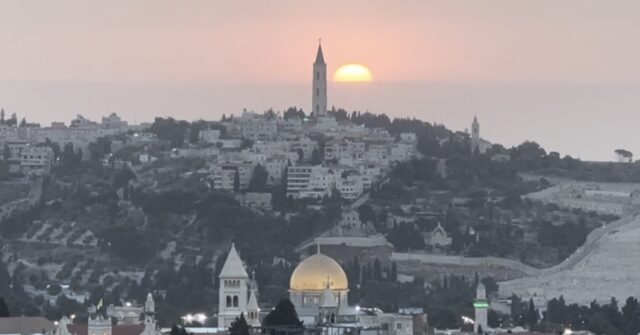Israelis and Jews worldwide will observe Yom Kippur, the holiest day on the Jewish calendar, beginning at sundown on Friday, October 11, and ending at nightfall on Saturday, October 12.
Yom Kippur means “Day of Atonement,” and it is devoted to atoning for one’s own sins and those of the community, both against other individuals and against God.
The central observance of the day is fasting. For more than 24 hours on Yom Kippur, Jews abstain from eating and drinking; bathing, sexual relations; and wearing leather (associated with comfort). Many Jews also wear white.
There are five prayers throughout the day, instead of the usual three: one on Friday evening, two on Saturday morning, one on Saturday afternoon, and one on Saturday evening to close the holiday and break the fast.
The prayers include some of the most celebrated melodies in the Jewish liturgy, including “Kol Nidrei,” the prayer that opens the holiday.
Despite the day’s physical challenges, it is meant to be a happy day, since it marks the renewal of one’s soul at the start of the Jewish New Year.
However, in Israel at least, Yom Kippur is also tinged with sadness. Not only did Israel suffer a surprise attack by Egypt and Syria on Yom Kippur on October 6, 1973, but the October 7th terror attack of 2023 came shortly after the 50th anniversary of that event.
Joel B. Pollak is Senior Editor-at-Large at Breitbart News and the host of Breitbart News Sunday on Sirius XM Patriot on Sunday evenings from 7 p.m. to 10 p.m. ET (4 p.m. to 7 p.m. PT). He is the author of The Agenda: What Trump Should Do in His First 100 Days, available for pre-order on Amazon. He is also the author of The Trumpian Virtues: The Lessons and Legacy of Donald Trump’s Presidency, now available on Audible. He is a winner of the 2018 Robert Novak Journalism Alumni Fellowship. Follow him on Twitter at @joelpollak.
Read the full article here
